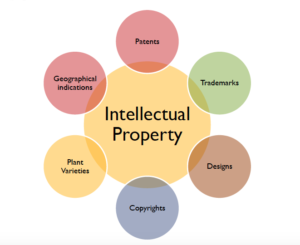NFTs and Intellectual Property: Navigating Rights and Royalties

NFTs have emerged as a groundbreaking development in the digital world, reshaping how we perceive ownership and value in the digital landscape. At the heart of this evolution lies the complex interplay between NFTs and intellectual property (IP) rights, particularly concerning royalties and rights management. This article delves into this intricate relationship, exploring how NFTs are redefining the traditional boundaries of intellectual property and the implications for creators, collectors, and the broader digital economy.

Understanding NFTs and Intellectual Property
NFTs are unique digital assets verified using blockchain technology, ensuring their authenticity and scarcity. Unlike cryptocurrencies, each NFT is distinct, making them ideal for representing ownership of unique items, be it digital art, music, or other forms of creative work.
Intellectual property, on the other hand, refers to creations of the mind, such as inventions, literary and artistic works, designs, symbols, names, and images used in commerce. IP law grants creators certain exclusive rights over their creations, providing a legal framework for protecting and monetizing their work.
The Convergence of NFTs and IP Rights
The advent of NFTs has introduced new dimensions to IP rights management. When an artist mints an NFT, they are essentially creating a digital certificate of ownership for their work. However, this does not automatically transfer the underlying IP rights to the buyer. The distinction between owning an NFT and owning the IP rights to the content it represents is a critical aspect often misunderstood in the NFT marketplace.
Royalties and Smart Contracts
One of the most significant impacts of NFTs on IP is the implementation of royalties through smart contracts. Smart contracts are self-executing contracts with the terms of the agreement directly written into code. In the context of NFTs, they can be programmed to automatically pay royalties to creators whenever their NFT is resold on the secondary market. This feature presents a revolutionary shift in how creators can continuously earn from their work, a concept that was challenging to enforce in the traditional art world.

Legal Challenges and Considerations
The integration of NFTs in IP raises several legal challenges. For instance, the enforceability of smart contract-based royalties in different jurisdictions remains a grey area. Additionally, there are concerns about copyright infringement, especially when NFTs represent digital copies of copyrighted works without the creator's consent.
The Future of NFTs in IP Management
As the NFT space evolves, it is likely to influence how IP rights are managed and enforced. The transparency and traceability offered by blockchain technology could lead to more efficient IP rights management systems. However, this will require collaboration between technologists, legal experts, and policymakers to ensure that the rights of creators are adequately protected while fostering innovation.

The intersection of NFTs and intellectual property is a dynamic and evolving landscape, offering both opportunities and challenges. While NFTs present a novel way for creators to monetize their work and receive ongoing royalties, there is a need for clearer legal frameworks to address the complexities involved. As the world continues to embrace digital transformation, the relationship between NFTs and IP rights will undoubtedly play a pivotal role in shaping the future of digital ownership and creativity.
Sqwid App (Sqwid)
Sqwid is an advanced NFT marketplace with an attractive UI and some radically distinctive features like loans against NFTs, support for files up to 100 MB, using IPFS for file storage, the lowest commissions, custom royalty splits, and more! With such features, Sqwid is highly competitive against many popular NFT marketplaces.
Website | X | Telegram
Reef Chain
Reef is an EVM-first blockchain designed to make Web3 accessible for the next billion users. Reef offers high scalability, affordable transactions and utilizes Nominated Proof of Stake, extensible EVM, and on-chain upgradability. Reef is the future blockchain for NFTs, DeFi, and gaming. It can easily accommodate the needs of the future of Web3 development. Reef is an ideal blend of old and new, a trait that makes it eternal and timeless. 🐠 Making Web3 accessible to the next billion users!
Website | Instagram | X | YouTube | Telegram | Discord | Reddit
